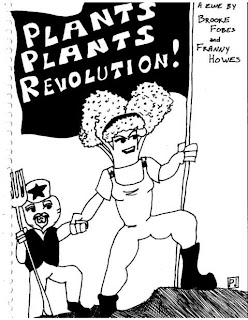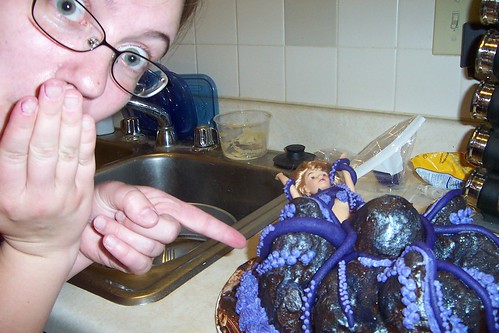Making up your recipe as you go along can be a scary idea to some people. However, cooking is not like other arts such as explosives manufacture, stereo assembly, or advanced computational geometry. It is a sensory art, and every time you cook (even from the same recipe) you are using your senses anew. Every tomato is different--the ripeness, the land of origin, all these things are variables that affect the character of the food. So, even if you are anal retentively precise about your recipe, things are still going to be different every time--so you might as well throw caution to the wind and put some stuff in a pot. (However, baking is a precise science and involves chemical reactions, so recipes are reccomended here.)
Cooking and baking from scratch are also mystifying to people who have never tried it, or even seen a bag of flour or a stockpot before. It is healthier and cheaper to use whole ingredients and not to rely on pre-made starter foods like veggie crumbles, canned sauces, and stuff-in-a-box. It is also tastier and more rewarding.
The industrial mass-production based food system was originally attractive to people because they were guaranteed the same sensory experience every time they bit into an Oreo or opened a box of Kraft Dinner. However, people have moved beyond that and now seek novelty with their food...which, in our current food system, results in an endless stream of new food "products" which are really just the same eight ingredients in different colored boxes. Fresh, fully-ripe whole foods are the original novel food, providing humans with stimulation and variety, as well as actual nutrients and a connection to the life of the plant.
We both started cooking from scratch by reading labels of our favorite prepared foods and trying to recreate them (a food hacker might call this reverse engineering which sounds way cooler than "reading the label on the soup can"). This is a good first step.
A second step is to find a combination of major elements that results in a satisfying dish--for example, a sauce with a protein in it, served over a grain, or lentil soup with random vegetables and a combination of herbs that seems tasty to you. (Brooke says: I have made medicinal soups this way--herbs like sage have healing properties, and the ever-popular garlic and onions have mild anti-viral properties as well as being ubiquitous seasoning bases. Franny made me say the word "ubiquitous".)
Other things you can do with the courage to cook without a safety net: tweak recipes to suit your tastes (as well as your allergies), combine more than one recipe for a dish from different sources to take advantage of the good qualities of both recipes, and veganize even the meatiest of loafs!

